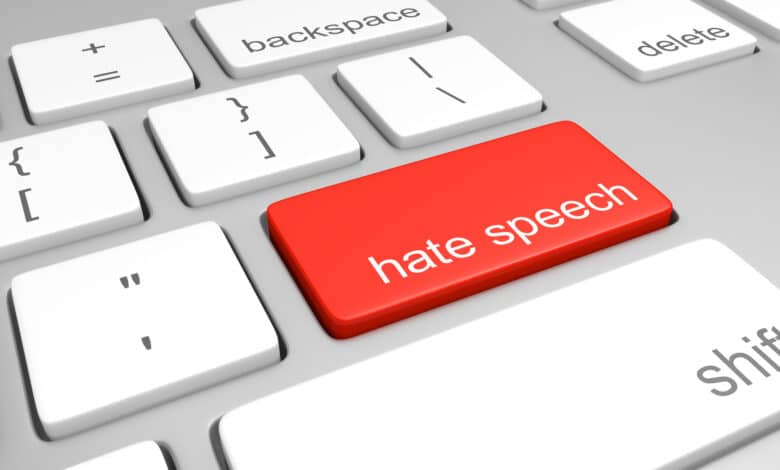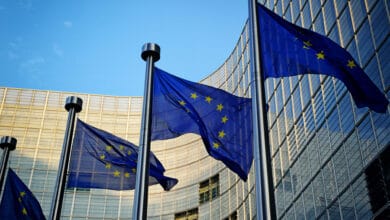
Many people use the apparent anonymity of the Internet to express their hatred. As a result, the perpetrators often get away with it. The EU member states no longer want to accept this. Accordingly, an initiative launched in December 2021 to criminalize hate and incitement on the Internet is now to be followed by action.
Punishability of hate and incitement on the Internet
The Internet has many beautiful, but unfortunately also a lot of ugly sides. Social media in particular have brought out the unattractive facets of our digital age. By now, pretty much everyone knows the term “Hatespeech” and can relate to it. But unfortunately, it is no longer limited to simple expressions of hatred by individuals or entire groups of people. Some users on the Internet are no longer afraid to threaten or even call for murder. We are witnessing an escalation that has victimized politicians and members of the press in particular, and continues to do so in the context of the Corona pandemic. The justice ministers of the 27 EU member states now finally want to put a stop to this. If they have their way, corresponding acts on the Internet should be punished in the same way as “in real life.”
Expansion of criminal offenses
A corresponding proposal stems from an initiative of the European Commission. The latter suggested at the end of last year that so-called “hate crimes” be included as a new criminal offense in the “Eurocrimes”. The elements of crime laid down there must apply to a certain minimum degree in every EU member state. As is often the case in the EU, there are still a few members who need to be convinced of the benefits of a corresponding criminal offense, but all in all, the community is on the right track. In the process, certain fundamental rights must be weighed against each other. On the one hand, there is the freedom of opinion as an elementarily important fundamental right. On the other hand, there is the injured person, who often feels that his or her honor has been violated. Not infrequently, the victim even has to fear that other people on the net will feel incited by corresponding comments and, in the worst case, even turn the words into deeds.
The EU is flexing its muscles
In the whole debate, it becomes clear that the Internet has increasingly developed into a lawless space for many users. Not only are “good childhood manners” forgotten here, and people swear and insult regardless of the consequences. On top of that, physical violence is also being threatened with increasing frequency. This problem does not only affect Germany. If one takes a holistic view of the European community, it quickly becomes clear that this is a phenomenon that affects all member states. This makes it all the more important for the EU to seek dialog with the operators of social networks first and foremost. After all, they are often the breeding ground for online hate. Many well-known networks such as Facebook and Twitter are becoming at least somewhat supportive in this regard.
But there are also negative examples like Telegram. The messenger has emerged as the hotspot for conspiracy theorists, so-called contrarians and right-wing radicals during the Corona pandemic. So far, the messenger service also still allows people to freely spread hate and incitement. The EU should no longer put up with this and must take all social networks to task, thinks the traffic light coalition. In particular, German Justice Minister Marco Buschmann recently spoke out vehemently in favor of a crackdown on hate and incitement on the Internet. After all, this “violates the principles of an open society.”
Some “online acts” are already punishable in this country
Incidentally, in the area of punishing hate and incitement on the Internet, Germany is already a big step ahead of some member states. For example, there are already special task forces that are specifically focused on the prosecution of hate speech. An active example can be found in Bavaria. Furthermore, Bushman makes clear once again in the context of an interview:
“Anyone who incites violence, threatens others with murder or spreads lists of enemies is committing a criminal offense. Against this, the police and judiciary in the countries must act decisively.”
Whether the regulations already in force in Germany are already sufficient, will be seen only when the EU Parliament has agreed on a corresponding directive. In this, corresponding minimum requirements would have to be established.
Social media is stronger than some law enforcement
Certainly, it will not be possible for every EU member to set up special task forces to prosecute hate and incitement online. This means that despite the directive, many crimes could remain hidden. It would therefore be all the more important for the EU to seek direct dialog with Facebook & Co. Representatives of the Meta Group and also Google were present at a meeting of EU justice ministers. Constructive talks probably took place during the event, the results of which will now probably have to be awaited. In particular, ways and means to improve law enforcement were discussed. For example, there was talk of making important evidence more accessible via the cloud. After all, it is the evidence in particular that takes the wind out of the sails of many prosecutions. Here it becomes clear that it is not necessarily only new criminal offenses that the EU needs. Rather, there needs to be a better connection with social media as a source of hate and incitement. It is they who have the most influence on content.




No replies yet
Neue Antworten laden...
Neues Mitglied
Beteilige dich an der Diskussion in der Basic Tutorials Community →